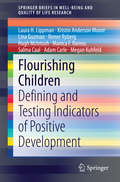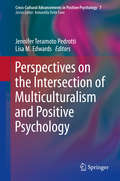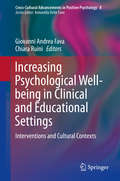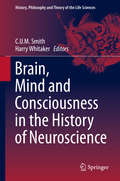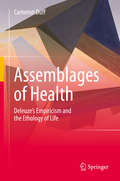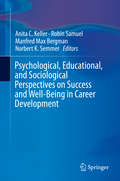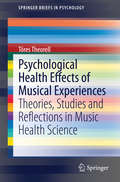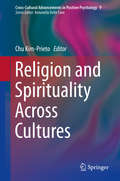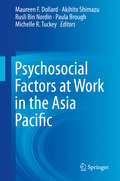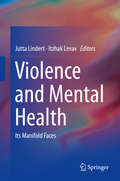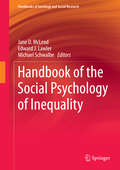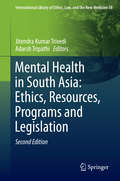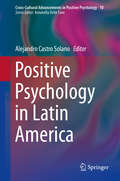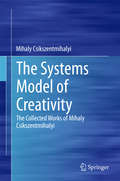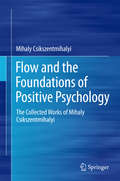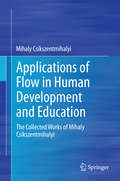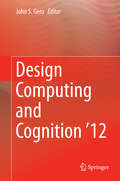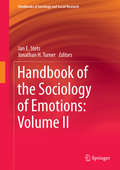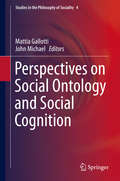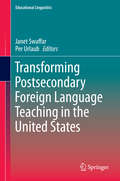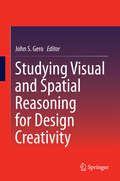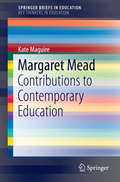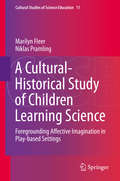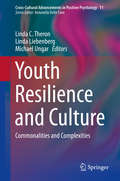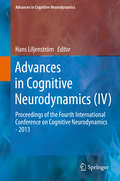- Table View
- List View
Flourishing Children
by Laura H. Lippman Kristin Anderson Moore Lina Guzman Renee Ryberg Hugh Mcintosh Manica F. Ramos Salma Caal Adam Carle Megan KuhfeldThis volume presents the results of the Flourishing Children Project. The study addressed gaps in the research on indicators of positive development of adolescents. Such indicators are essential for the balanced and scientifically sound study of adolescents. Yet measures of many aspects of flourishing are not available, and when they do exist, they are rarely measured in a developmentally appropriate manner for adolescents. In addition, they are often too long for program evaluations and surveys, have not been tested on diverse populations, nor carefully validated as predictors of positive outcomes. The Flourishing Children Project undertook the development of scales for adolescents ages 12-17 for 19 aspects of flourishing covering six domains: flourishing in school and work, personal flourishing, flourishing in relationships, relationship skills, helping others to flourish, and environmental stewardship. This volume describes the four-stage process of developing the scales, including: Reviewing the literature for extant measures for items to test and synthesizing the existing research into consensus definitions for each construct; conducting cognitive testing of items with adolescents and their parents; pilot testing the items; and conducting psychometric analyses.
Perspectives on the Intersection of Multiculturalism and Positive Psychology
by Jennifer Teramoto Pedrotti Lisa M. EdwardsThe volume will be a collection of chapters about current theory, research, and practice related to multiculturalism and positive psychology. This book will serve as a reference to any who are interested in the intersection of positive psychology and multicultural context. While many in the field of positive psychology have begun to move more strongly towards a culturally-embedded approach that recognizes the importance of context in discussing, viewing and cultivating strengths in individuals from different backgrounds, there is still a dearth of research in this area compared with studies that take a cross-cultural approach (comparing people from different countries) or one that is purported to be "culture-free" or universal in its application. While it is becoming more common to see various articles or chapters published on these topics, there is still no comprehensive text aimed at discussion of the collection of these topics presented in a cohesive and structured way. This book aims to fill this gap in the literature. In this book, a broad definition of culture is utilized that includes such facets as race, ethnicity, socioeconomic or social class status, disability, religion, sexual orientation and gender. This book is intended to present research, theory and suggestions for practice that are grounded in diverse cultural contexts and current scholarship. It will assist researchers, students and practitioners who are studying and working within diverse populations. Currently there exists no comprehensive text that addresses the intersection of positive psychology and multiculturalism. Several edited volumes address positive psychology constructs (e. g. , well-being, optimal experience, autonomy) across cultures, but they do not focus on multicultural populations within the United States. Other books focus more specifically on mental health applications and stress and coping among multicultural populations, however these books do not provide a broad perspective on psychology beyond this application piece. The proposed book will review current theory and research about constructs in addition to applications across contexts. Finally, other published books have focused on youth within multicultural society; this volume is more broad in its address of issues of positive psychology across the lifespan and across various aspects of identity including disability, gender, social class and sexual orientation.
Increasing Psychological Well-being in Clinical and Educational Settings
by Giovanni Andrea Fava Chiara RuiniThis volume deals with strategies aimed at increasing psychological well-being in both clinical and non-clinical settings, with a special focus on the impact of cross-cultural influences on these processes. Consisting of two parts, the book first examines clinical interventions for increasing well-being and positive functioning in adult populations. It looks at cultural differences in the experience of psychological well-being, presents an analysis of the concept of psychological well-being and discusses various interventions, including Well-Being Therapy and Cognitive Behavioral Therapy. Other concepts discussed are post-traumatic growth, wisdom and motivation. The second part of the book deals with psychological interventions in childhood and adolescence and has a strong emphasis on educational settings. It provides an overview of the main evidence-based psychotherapies for affective disorders in youths, and looks at the importance and impact of positive education, resilience, and hope. The book presents models for intervention and discusses several therapies in detail.
Brain, Mind and Consciousness in the History of Neuroscience (History, Philosophy and Theory of the Life Sciences #6)
by C. U. M. Smith Harry WhitakerThis volume of essays examines the problem of mind, looking at how the problem has appeared to neuroscientists (in the widest sense) from classical antiquity through to contemporary times. Beginning with a look at ventricular neuropsychology in antiquity, this book goes on to look at Spinozan ideas on the links between mind and body, Thomas Willis and the foundation of Neurology, Hooke's mechanical model of the mind and Joseph Priestley's approach to the mind-body problem. The volume offers a chapter on the 19th century Ottoman perspective on western thinking. Further chapters trace the work of nineteenth century scholars including George Henry Lewes, Herbert Spencer and Emil du Bois-Reymond. The book covers significant work from the twentieth century, including an examination of Alfred North Whitehead and the history of consciousness, and particular attention is given to the development of quantum consciousness. Chapters on slavery and the self and the development of an understanding of Dualism bring this examination up to date on the latest 21st century work in the field. At the heart of this book is the matter of how we define the problem of consciousness itself: has there been any progress in our understanding of the working of mind and brain? This work at the interface between science and the humanities will appeal to experts from across many fields who wish to develop their understanding of the problem of consciousness, including scholars of Neuroscience, Behavioural Science and the History of Science.
Assemblages of Health: Deleuze's Empiricism and the Ethology of Life
by Cameron DuffThis book presents a review of Deleuze's key methods and concepts in the course of exploring how these methods may be applied in contemporary studies of health and illness. Taken from a Deleuzian perspective, health and wellbeing will be characterized as a discontinuous process of affective and relational transitions. The book argues that health, conceived in terms of the quality of life, is advanced or facilitated in the provision of new affective sensitivities and new relational capacities. Following an assessment of Deleuze's key ideas, the book will offer a series of case studies designed to illustrate how Deleuze's ideas can be applied to select health problems. This analysis draws out the specific advantages of a Deleuzian approach to public health research, establishing grounds for more widespread engagement with Deleuze's ideas across the health and social sciences.
Psychological, Educational, and Sociological Perspectives on Success and Well-Being in Career Development
by Anita C. Keller Robin Samuel Manfred Max Bergman Norbert K. SemmerThis collection covers how success and well-being relate to each other in early career development in the domains of employment and education. It gives a conceptual overview of success and well-being as established in the psychological research tradition, complemented by educational and sociological approaches. The volume presents articles on success and well-being in applied contexts, such as well-being as an individual resource during school-to-work transition, or well-being and success at the workplace. Work psychologists, social psychologists, educational researchers, and sociologists will find this book valuable, as it provides unique insights into social and psychological processes afforded by the combination of disciplines, concepts, and a diversity of approaches.
Psychological Health Effects of Musical Experiences
by Töres TheorellThis book is about links between music and health. It focuses on music and public health, and, in particular, the potentially positive and negative effects of listening to and making music on the health of the general population. The book starts out by discussing the protection music offers against adverse effects of stress. It then discusses social aspects of music production and listening and examines religious music within the framework of social functioning. It offers insight into the physiological and psychological effects of music listening, the biological effects of singing, and the use of music in therapeutic situations and the rearing of children. The book concludes by discussing the significance of music for musicians and their health. Although it may seem that music has only good health effects, and therefore all professional musicians should be healthy, not all music effects are positive. The book describes situations in which music has negative health effects and makes clear that there is a pronounced difference between living with music for joy and to earn one´s living from making music. In the latter situation, performance anxiety may become a factor that affects health adversely.
Religion and Spirituality Across Cultures
by Chu Kim-PrietoThis book presents an integrated review and critical analysis of the recent research in the positive psychology of religion, with focus on the positive psychology of religion across different cultures and religions. The book provides a review of the literature on different contributions of religion and spirituality to positive functioning and well-being and reviews religions across the world, including Christianity, Islam, Buddhism, Judaism, Sikhism, Native American religions, and Hinduism It fills a unique place in the market's increasing interest and demand in the psychology of religion, as well as positive psychology. While the target audience is researchers, scholars, and students in psychology, cross-cultural studies, religious studies, and social sciences, it will be useful for anyone interested in better understanding the contributions of religion and culture in subjective well-being.
Psychosocial Factors at Work in the Asia Pacific
by Maureen F. Dollard Akihito Shimazu Rusli Bin Nordin Paula Brough Michelle R. TuckeyThe past several decades of rapid organizational change and global economic activity beseech a fresh understanding of work conditions and mental health across all nations and regions. This volume addresses psychosocial factors at work, legislation, frameworks, research innovations and common perceptions in the Asia Pacific countries. It presents new research on psychosocial factors at work from an Asia Pacific perspective, introducing exciting new research on workaholism, bullying, work-life balance and conflict, work demands classifications, and psychosocial safety climate. Insights regarding workplace psychosocial factors, worker health and well-being have evolved mainly within North American and European cultural contexts and developed industrial countries. This state of the art account of knowledge development in the Asia Pacific region will stimulate new insights for researchers and policy makers to improve the quality of workers' lives worldwide. "This very informative book highlights the significance and uniqueness of job stress problems encountered by workers of different countries in the Asia Pacific region. Occupational health researchers all around the world will find this book a great inspiration for future research. " Yawen Cheng, ScD, Institute of Health Policy and Management, Taiwan "Initiatives and interventions reported from collaborative projects present useful hints for filling gaps in policies and practices for managing psychosocial risk factors in diverse work-life situations in the Asia Pacific region". Dr. Kazutaka Kogi, President, International Commission of Occupational Health
Violence and Mental Health
by Jutta Lindert Itzhak LevavViolence is one of the most important challenges, not only for public health systems, but also for public mental health. Violence can have immediate as well as long-term and even transgenerational effects on the mental health of its victims. This book provides a comprehensive and wide-ranging assessment of the mental health legacy left by violence. It addresses the issues as they affect states, communities and families, in other words at macro-, meso- and microlevels, beginning by describing the impact of violence on neurobiology and mental health, as well as the spectrum of syndromes and disorders associated with different forms of violence. The work moves on to tackle violence at the international--and intranational--level before zeroing in on the nature of violence in communities such as villages or city districts. It also examines the results of violence in the family. Each type of violence has distinct effects on mental health and in each chapter specific groups are explored in depth to demonstrate the heterogeneity of violence as well as the diversity of its outcomes in the realm of public mental health. Finally, the book addresses the notion of 'undoing violence' by detailing case studies of effective interventions and prevention occurring in countries, communities and families. These cases give us pause to reflect on the nature of resilience and dignity in the context of violence and mental health. All the chapters have been written by leading authors in the field and provide a state-of-the-art perspective. The authors, from different fields of expertise, facilitate interdisciplinary and international insights into the impact of violence on mental health.
Handbook of the Social Psychology of Inequality
by Jane D. Mcleod Edward J. Lawler Michael SchwalbeThis volume provides the first comprehensive overview of social psychological research on inequality for a graduate student and professional audience. Drawing on all of the major theoretical traditions in sociological social psychology, its chapters demonstrate the relevance of social psychological processes to this central sociological concern. Each chapter in the volume has a distinct substantive focus, but the chapters will also share common emphases on: * The unique contributions of sociological social psychology * The historical roots of social psychological concepts and theories in classic sociological writings * The complementary and conflicting insights that derive from different social psychological traditions in sociology. This Handbook is of interest to graduate students preparing for careers in social psychology or in inequality, professional sociologists and university/college libraries.
Mental Health in South Asia: Ethics, Resources, Programs and Legislation
by Jitendra Kumar Trivedi Adarsh TripathiAsia is by far the largest continent in the world in terms of area with population exceeding 3. 5 billion and has dozens of cultures, religions, languages and ethnic groups. As a result of its highly varied political systems, Asia also spawns a wide variety of health care systems including mental health care systems, often based on historical roots and at times colonial heritages. The people who suffer from mental or neurological disorders in the continent form a vulnerable section of society and often face stigma, discrimination and marginalization in all societies, and this increases the likelihood that their human rights will be violated This book tackles the issue of mental health legislation in South Asia The first of its kind, it addresses an issue that is necessary for protecting the rights of people with mental disorders and serves as an essential text for reinforcing mental health policy in South Asia It is a timely addition to our global understanding of mental health and how different regions address it.
Positive Psychology in Latin America
by Alejandro Castro SolanoThis volume describes a culture-fair perspective on positive psychology research and practice in Latin America It provides a deep understanding of the ways in which context can affect practice, intervention and research results. The development of Positive Psychology in areas such as test adaptation and construction, prediction of academic achievement and empowerment of children at risk is presented. Furthermore, topics related to positive communities and citizenship behaviors are included. The volume is organized into four sections. The first section presents the importance of test adaption and construction in order to assess Positive Psychology constructs, with a special focus on well-being as a core construct. The second section summarizes a group of research studies carefully designed to predict academic achievement applying Positive Psychology constructs. The third section outlines a set of studies intended to develop flow, resilience, social skills and positive emotions in children at risk. And finally the fourth and last section introduces two points of view focused on communities in order to assess positive dimensions and to promote positive behaviors. This volume, aimed at researchers and Psychology, Education, Health and the Social Sciences students, is a useful tool for people interested in the development of Positive Psychology in Latin American countries.
The Systems Model of Creativity
by Mihaly CsikszentmihalyiThis first volume of the Collected Works of Mihaly Csikszentmihalyi represents his work on Art and Creativity. Starting with his seminal 1964 study on creativity up to his 2010 publication in Newsweek, the volume spans over four decades of research and writing and clearly shows Csikszentmihalyi's own development as an academic, psychologist, researcher and person. Unconventional and unorthodox in his approach, Csikszentmihalyi chose the topic of creativity as a field of study believing it would help him be a better psychologist and advance his understanding of how to live a better life. The chapters in this volume trace the history of the study of creativity back to the days of Guilford and research on IQ and Jacob Getzels' work on creativity and intelligence. Firmly grounded in that history, yet extending it in new directions, Mihaly Csikszentmihalyi started his life-long study on artistic creativity. His first extensive study at the School of the Art Institute of Chicago enabled him to observe, test and interview fine art students drawing in a studio. The study formed the very basis of all his work on the subject and has resulted in several articles, represented in this volume, on such creativity-related concepts as problem solving versus problem finding, the personality of the artist, the influence of the social context, creativity as a social construction, developmental issues and flow. The main contribution to the topic of creativity and also the main concept explored in this volume, is the Systems Model of Creativity. Seven chapters in this volume discuss the development of this conceptual model and theory.
Flow and the Foundations of Positive Psychology
by Mihaly CsikszentmihalyiThe second volume in the collected works of Mihaly Csikszentmihalyi covers about thirty years of Csikszentmihalyi's work on three main and interconnected areas of study: attention, flow and positive psychology. Describing attention as psychic energy and in the footsteps of William James, Csikszentmihalyi explores the allocation of attention, the when and where and the amount of attention humans pay to tasks and the role of attention in creating 'experiences', or ordered patterns of information. Taking into account information processing theories and attempts at quantifying people's investment, the chapters deal with such topics as time budgets and the development and use of the Experience Sampling Method of collecting data on attention in everyday life Following the chapters on attention and reflecting Csikszentmihalyi's branching out into sociology and anthropology, there are chapters on the topic of adult play and leisure and connected to that, on flow, a concept formulated and developed by Csikszentmihalyi. Flow has become a popular concept in business and management around the world and research on the concept continues to flourish. Finally, this volume contains articles that stem from Csikszentmihalyi's connection with Martin Seligman; they deal with concepts and theories, as well as with the development and short history, of the field and the "movement" of positive psychology.
Applications of Flow in Human Development and Education: The Collected Works of Mihaly Csikszentmihalyi
by Mihaly CsikszentmihalyiThe third volume of the collected works of Mihaly Csikszentmihalyi covers his work on the application of flow in areas that go beyond the field of leisure where the concept was first applied. Based on his personal experience with schooling and learning, as well as that of many others and contrary to what Cicero claimed, Csikszentmihalyi arrived at the conclusion that instead of taking pride in making the roots of knowledge as bitter as possible, we should try to make them sweeter. Just as flow became a popular and useful concept in voluntary activities, it could likewise be applied in education with the end result of young people being more likely to continue learning not just because they have to but because they want to. This volume brings together a number of articles in which Csikszentmihalyi develops ideas about how to make education and more generally the process of learning to live a good life, more enjoyable. Since theory is the mother of good practice, the first eleven chapters are devoted to theoretical reflections. Some are general and explore what it means to be a human being, what it means to be a person, when we look at life from the perspective of flow. Others are more narrowly focused on such topics as consumption, education, teaching and learning. They help laypeople reflect how they can arrange their lives in such a way as to leave a small ecological footprint while getting the most enjoyment. The second section of the volume contains a dozen empirical articles on similar topics They deal with the development of identity and self-worth; with the formation of goals and motivation; with loneliness and family life.
Design Computing and Cognition '12
by John S. GeroDesign thinking, the label given to the acts of designing, has become a paradigmatic view that has transcended the discipline of design and is now widely used in business and elsewhere. As a consequence there is an increasing interest in design research. This is because of the realization that design is part of the wealth creation of a nation and needs to be better understood and taught. The continuing globalization of industry and trade has required nations to re-examine where their core contributions lie if not in production efficiency. Design is a precursor to manufacturing for physical objects and is the precursor to implementation for virtual objects. At the same time, the need for sustainable development requires the design of new products and processes, which feeds a movement towards design innovations and inventions. The papers in this volume are from the Fifth International Conference on Design Computing and Cognition (DCC'12) held at Texas A & M University, USA. They represent the state-of-the-art of research and development in design computing and design cognition. They are of particular interest to researchers, developers and users of advanced computation in design and those who need to gain a better understanding of designing.
Handbook of the Sociology of Emotions: Volume II
by Jan E. Stets Jonathan H. TurnerHandbook of the Sociology of Emotions Volume II presents all new chapters in the ever developing area of the sociology of emotions. The volume is divided into two sections: Theoretical Perspectives and Social Arenas of Emotions. It reviews major sociological theories on emotions, which include evolutionary theory, identity theory, affect control theory, social exchange theory, ritual theory, and cultural theory among others. Social arenas where emotions are examined include, but are not limited to, the economy and the workplace, the family, mental health, crime, sports, technology, social movements and the field of science. All the chapters review the major theories and research in the area and each chapter ends with some discussion of directions for future research. The Sociology of Emotions is a fast growing and vital field in the broad discipline of Sociology. This volume II follows the Handbook of the Sociology of Emotions which was first published in 2006. In 2008, this first handbook received the "Outstanding Recent Contribution" in the Emotions Section of the American Sociological Association. With contributions from leading scholars from different areas in the discipline, such as neurosociology, culture, economics, mental health, gender, social movements, discussing state-of-art theory and research on emotions in sociology this volume will generate wider appeal to the sociological community.
Perspectives on Social Ontology and Social Cognition
by Mattia Gallotti John MichaelPerspectives on Social Ontology and Social Cognition brings together contributions discussing issues arising from theoretical and empirical research on social ontology and social cognition. It is the first comprehensive interdisciplinary collection in this rapidly expanding area. The contributors draw upon their diverse backgrounds in philosophy, cognitive science, behavioral economics, sociology of science and anthropology. Based largely on contributions to the first Aarhus-Paris conference held at the University of Aarhus in June 2012, the book addresses such questions as: If the reference of concepts like money is fixed by collective acceptance, does it depend on mechanisms that are distinct from those which contribute to understanding the reference of concepts of other kinds of entity? What psychological and neural mechanisms, if any, are involved in the constitution, persistence and recognition of social facts? The editors' introduction considers strands of research that have gained increasing importance in explaining the cognitive foundations of acts of sociality, for example, the theory that humans are predisposed and motivated to engage in joint action with con-specifics thanks to mechanisms that enable them to share others' mental states. The book also presents a commentary written by John Searle for this volume and an interview in which the editors invite Searle to respond to the various questions raised in the introduction and by the other contributors.
Transforming Postsecondary Foreign Language Teaching in the United States
by Janet Swaffar Per UrlaubThis volume addresses critical challenges and issues facing foreign language departments in colleges and universities across the U. S. It presents the insights of individuals who have built or are in the process of building foreign language curricula during a major transition period in postsecondary institutions. The authors of this volume come from various language departments and institutional experience from across the U. S. , including private and public postsecondary foreign language teachers, researchers and administrators. The chapters address issues and provide templates for curricular change at all learning levels. The five sections of this book explore: Changing Perceptions about Foreign Language Learning; The Case for a Multi-literacy FL Curriculum in Concept and Assessment Praxis; Curricular Transformations: Historical Hurdles and Faculty Heuristics; Rethinking the Graduate Curriculum; Foreign Languages' Integration into the Interdisciplinary University. "This thought-provoking and timely volume addresses the question of how historic and current disciplinary, institutional and political conditions affect curricular transformation in collegiate foreign language programs. Responding to the issues raised in the 2007 MLA Report, this collection of nine essays presents a diversity of curricular models and approaches from different theoretical perspectives focusing on the integration of language and content. The book will undoubtedly be of great interest to a broad audience, such as foreign language educators, curriculum designers, administrators, graduate students and researchers. " Nelleke Van Deusen-Scholl, Yale College, CT, USA.
Studying Visual and Spatial Reasoning for Design Creativity
by John S. GeroCreativity and design creativity in particular are being recognized as playing an increasing role in the social and economic wellbeing of a society. As a consequence creativity is becoming a focus of research. However, much of this burgeoning research is distributed across multiple disciplines that normally do not intersect with each other and researchers in one discipline are often unaware of related research in another discipline. This volume brings together contributions from design science, computer science, cognitive science and neuroscience on studying visual and spatial reasoning applicable to design creativity. The book is the result of a unique NSF-funded workshop held in Aix-en-Provence, France. The aim of the workshop and the resulting volume was to allow researchers in disparate disciplines to be exposed to the other's research, research methods and research results within the context of design creativity. Fifteen of the papers presented and discussed at the workshop are contained in this volume. The contributors come from Germany, Israel, Netherlands, Poland, Singapore, UK and USA, indicating the international spread of the research presented in this volume.
Margaret Mead
by Kate MaguireThis book makes a case for Margaret Mead's contributions to education discourses, which in retrospect appear visionary and profoundly democratic, non judgemental and transdisciplinary, and for their relevance for education today at primary, secondary and tertiary levels. Mead combined her substantial skills and knowledge as a linguist, anthropologist and psychologist to draw attention to the primary role of culture and society in identity formation, privileging against sterner perspectives, the idea that the conditions that support the emergence of balanced personalities, able to contribute to society and to progress themselves as individuals, starts with observation of self before that of others. This observation of and reflection on self was for her a necessary demonstration of transparency while close observation of others was 'an act of love', much as the artist contemplates his/her subject, that dissolved negative differences of culture, belief and status.
A Cultural-Historical Study of Children Learning Science: Foregrounding Affective Imagination in Play-based Settings (Cultural Studies of Science Education #11)
by Marilyn Fleer Niklas PramlingThis book moves beyond the traditional constructivist and social-constructivist view of learning and development in science. It draws upon cultural-historical theory in order to theorise early childhood science education in relation to our currently globalised education contexts. The book argues that concept development in science for young children can be better theorised by using Vygotsky's concept of Imagination and creativity, Vygotsky's theory of play, and his work on higher mental functions, particularly the concept of inter and intrapsychological functioning. Key concepts are extracted from the theoretical section of the book and used as categories for analysis in presenting evidence and new ideas in the second section of the book. In this second part of the book, the authors examine how science knowledge has been constructed within particular countries around the globe, where empirical research in early childhood science education has occurred. The third part of the book examines the nature of the encounter between the teacher and the child during science learning and teaching. In the final part of the book the authors look closely at the range of models and approaches to the teaching of early childhood science that have been made available to early childhood teachers to guide their planning and teaching. They conclude the book with a theoretical discussion of the cultural-historical foundation for early childhood science education, followed by a model of teaching scientific concepts to young children in play-based settings, including homes and community contexts.
Youth Resilience and Culture
by Linda C. Theron Linda Liebenberg Michael UngarUntil researchers and theorists account for the complex relationship between resilience and culture, explanations of why some individuals prevail in the face of adversity will remain incomplete. This edited volume addresses this crucial issue by bringing together emerging discussions of the ways in which culture shapes resilience, the theory that informs these various studies, and important considerations for researchers as they continue to investigate resilience. Using research from majority and minority world contexts, 'Youth Resilience and Culture: Commonalities and Complexities' highlights that non-stereotypical, critical appreciation of the cultural systems in which youth are embedded, and/or affiliate with, is pivotal to understanding why particular resilience processes matter for particular youth in a particular life-world at a particular point in time. In doing so, this book sensitizes readers to the importance of accounting for the influence of cultural contexts on resilience processes, and to the danger of conceptualising and/or operationalising resilience, culture, and their interplay, simplistically or idealistically. In short, the progressive contents of 'Youth Resilience and Culture: Commonalities and Complexities' make it an essential read for resilience-focused scholars, students, academics, and researchers, as well as policy makers, practitioners, and humanitarian workers engaged with high-risk populations.
Advances in Cognitive Neurodynamics: Proceedings of the Fourth International Conference on Cognitive Neurodynamics - 2013 (Advances in Cognitive Neurodynamics)
by Hans LiljenströmThis volume is the proceedings of the 4th International Conference on Cognitive Neurodynamics (ICCN2013) held in Sweden in 2013. The included papers reflect the large span of research presented and are grouped in ten parts that are organized essentially in a top-down structure. The first parts deal with social/interactive (I) and mental (II) aspects of brain functions and their relation to perception and cognition (III). Next, more specific aspects of sensory systems (IV) and neural network dynamics of brain functions (V), including the effects of oscillations, synchronization and synaptic plasticity (VI), are addressed, followed by papers particularly emphasizing the use of neural computation and information processing (VII). With the next two parts, the levels of cellular and intracellular processes (VIII) and finally quantum effects (IX) are reached. The last part (X) is devoted to the contributions invited by the Dynamic Brain Forum (DBF), which was co-organized with ICCN2013.
